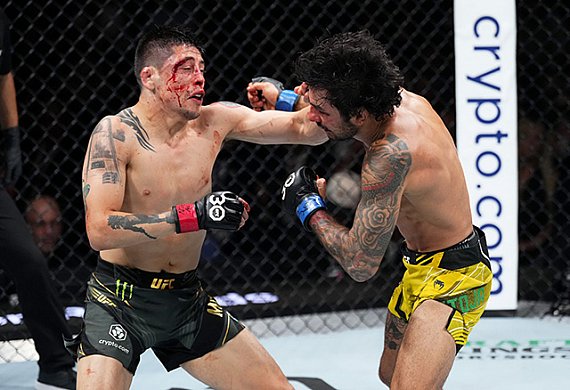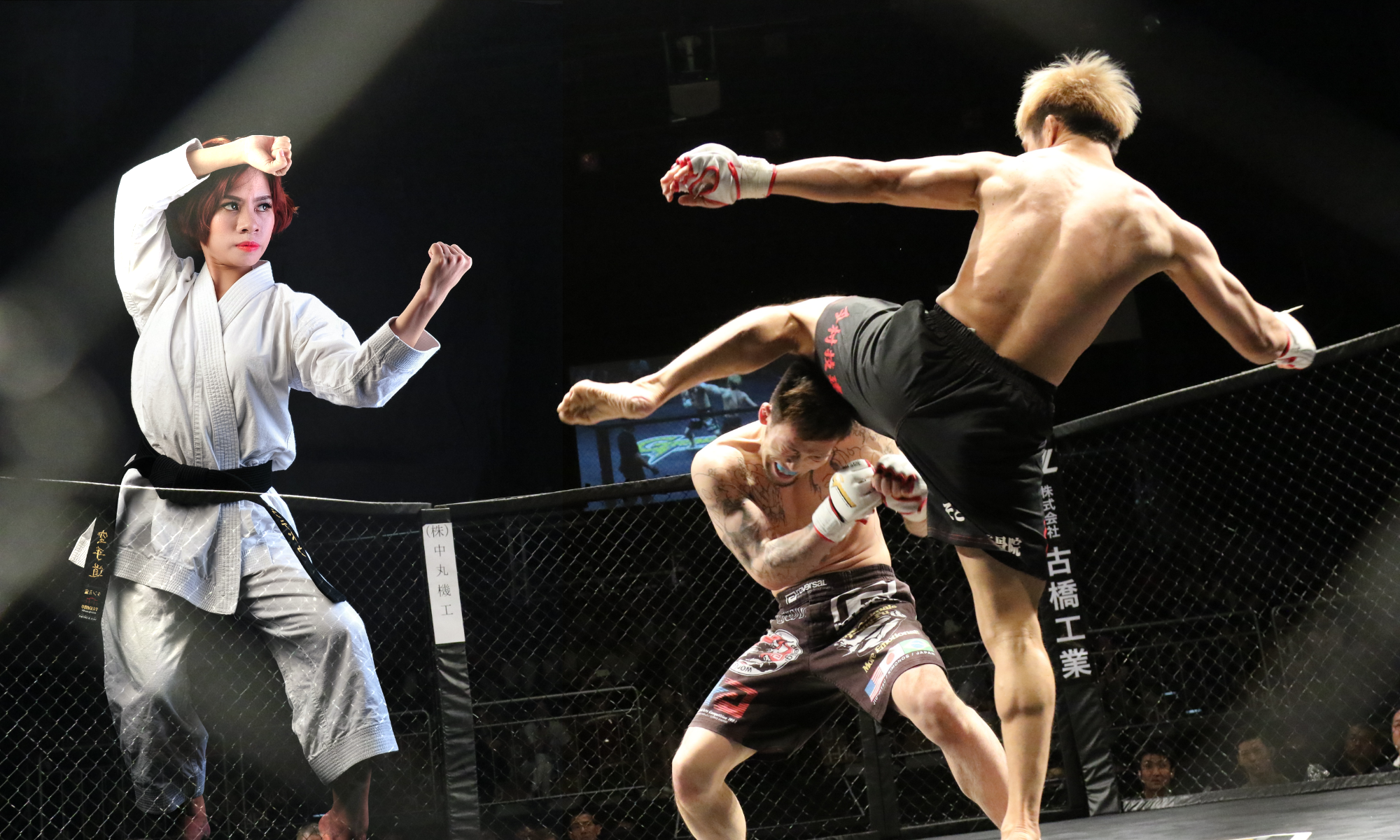
After a 28-day drought that coincided with Amanda
Nunes’ retirement, Alexandre
Pantoja brought a UFC title back to Brazil with his thrilling
victory over Brandon
Moreno on Saturday night.
Advertisement
The official verdict was one of the UFC 290 co-main event’s most
tense moments, with the scoring of a couple closely-contested
rounds up for debate. In the end, Pantoja became the promotion’s
fifth flyweight champion with a split-decision triumph. The
scorecards, however, remained a subject of controversy,
particularly the one submitted by judge Ben Cartlidge. While Derek
Cleary and Junichiro Kamijo submitted identical 48-47 tallies in
favor of Pantoja, Cartlidge saw it 49-46 for Moreno — giving the
final four frames to the Mexican flyweight.
Respected Brazilian judge Guilherme Bravo discussed the scoring on
his show “Momento Bravo” after the bout.
“That really scared me. In that fifth round Pantoja was superior,
even in striking aspects in the first two minutes. Then he took
Moreno down at the 2:15 mark, got the back, closed the lock,
punished him with punches from his back. Then he applied the cross
face and the fight was over. Each of these grappling actions must
be scored just like a punch or kick is while the fight is standing.
Control is different from dominance. What Pantoja did was go
forward in order to decide the fight and that must be considered in
a judge’s criteria.”
Bravo also explained how he judges each action.
“I like the point system. I attribute values to each action. Of
course, it depends on other factors like the 3 D´s (damage,
duration and dominance). But everything must be scored both in
grappling and striking aspects. Just like you attribute values to
jabs and kicks, you must do the same with a throw, guard pass,
mount and submission attempt. MMA is a very complex mult-
disciplinary sport and must be judged in all its complexity.”
With the experience of having judged many UFC cards in Brazil,
Bravo also explained what happens once the event concludes. He
hopes that one day judges will be able to explain their reasoning
to fans and media just as they do to athletic commissions and the
UFC behind closed doors.
“When the UFC is over, all the judges and referees have a meeting
in a closed room with a UFC representative, normally [Marc Ratner],
and commissioners, where all results are debated,” he said. “Of
course the result of that debate doesn’t go to the media, but I
hope one day that changes.
“I have the notes I took from all UFC fights that I judged since
2011. I think it would be a step forward to the sport if the
fighters and fans could understand the judges criteria better and
it would be great for judges too to explain their view.”

